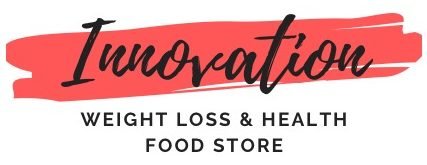February is American Heart Month, so we want to ask – how healthy is your heart? Heart disease is the leading cause of death for men and women in the United States. But the good news is, with healthy choices and the management of health conditions, heart disease can often be prevented. Make sure you are doing everything you can to keep your heart healthy and strong with the following tips for a healthy heart:
1. Get a check up. In general, you should be getting a check up at least once a year. If it has been more than a year or you can’t even remember the last time you saw your doctor, now is a great time to get yourself checked out and get the right tests done to make sure your heart is healthy. Ask about blood pressure tests, cholesterol tests, diabetes screening and seek counseling if you need extra guidance. Learn about prevention for conditions you may be at risk for. Keep cholesterol and blood pressure in check. Cholesterol is one of the major controllable risk factors for heart disease and heart attack. When there is too much LDL (“bad”) cholesterol circulating in your blood, it can slowly build up in your arteries and create plaque that can narrow your arteries. If a clot forms, it can block a narrowed artery and a heart attack or stroke can happen. High blood pressure can damage your heart and arteries by placing too much pressure on them. This can cause microscopic tears in the walls of your arteries. If you are already at risk for heart disease, or take medication for blood pressure, high cholesterol or diabetes, follow the instructions carefully. Manage your symptoms and medications carefully with your doctor.
2. Eat right. Having a healthy diet is great for your weight loss but can also help prevent heart disease and improve heart health. Reduce trans fats and steer clear of foods high in sodium. Look for foods with protein, fiber and Omega-3. Omega-3 fatty acids help reduce inflammation in the body and can prevent damage to bloods vessels that can cause heart disease. Salmon is a great source of Omega-3 (as well as many other vitamins and minerals) which makes it such a smart choice for heart health. Look for protein in legumes such as beans, peas and lentils. They are great for your heart because they have no cholesterol. Nuts such as walnuts and cashews are also extremely healthy sources of protein. Fruits with antioxidants like blueberries help remove free radicals (harmful molecules that can contribute to heart disease) with their powerful antioxidants. Spinach is one of the healthiest foods for your heart with Omega-3 fatty acids, antioxidants, vitamins and fiber. It has a particularly high amount of folate, which is important for building and maintaining healthy cells – especially red blood cells needed for heart health. Ground flaxseed is also high in Omega-3 and fiber and can be added to yogurt, quinoa and even mustard for an extra healthy meal or snack.
3. Don’t smoke and limit alcohol use. Alcohol can increase the risk of high blood pressure and heavy drinking can weaken the heart muscle. Smoking is also a risk factor for high blood pressure as well as heart failure and coronary artery disease which can lead to heart attack.
5. Limit stress. Identify your sources of stress such as anxiety, aches and pains, trouble sleeping, and fatigue. Learn techniques to reduce stress, like deep breathing, meditation, guided muscle relaxation and yoga. Get plenty of rest as often as you can. Clear your mind of nagging worries and let go of things you can’t control. Spending time stressing about other people or situations you can’t control will just take away all your energy and put stress your body. Take 10 minutes to get some air and take a break every day. Most of all, take care of yourself.
8031 Jericho Tpke Woodbury, NY 11797
469 7th Ave Manhattan, NY 10018
Related Posts
We are now on UBER EATS 7 days a week for your convenience




